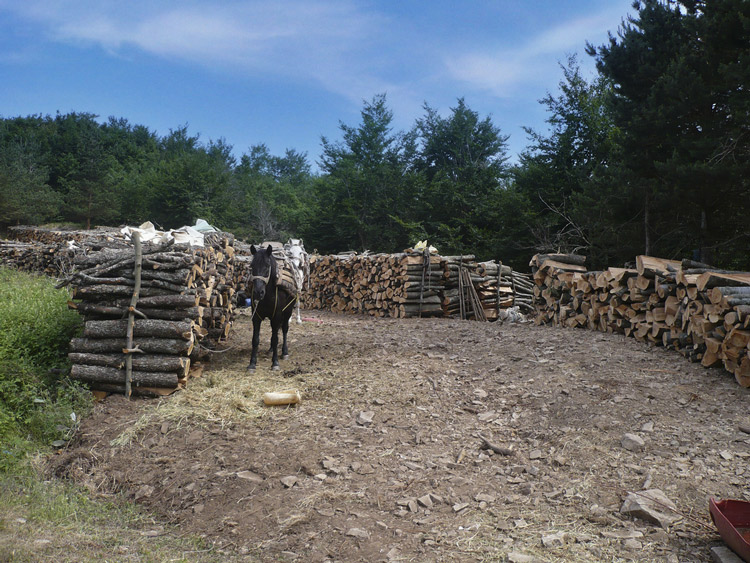Mushrooms, honey, wood and resin, shade, fresh air and wonderful moments: our forests offer a number of material and immaterial goods. Their proper care and management is beneficial to all of us. Forestry is one of the main sectors of primary production in Greece and, when following regulations and practiced with respect, it protects forests while offering the country a realistic prospect of sustainable development.

© WWF Greece
Sustainable forest production is one of the most important factors in forest conservation. Not only does it control the over-accumulation of biomass, but it also ensures that people with the necessary knowledge and interest are constantly present in the forests. Timber production, for instance, allows the state to implement management measures at little to no cost (as timber is subsequently marketed) and supplies the domestic wood industry with raw material. During the past decade, however, the average timber production in Greece has been reduced to almost half that of the preceding decade, adding up to roughly 372,000 cubic meters per year. This decline in production is not due to a depletion or degradation of the available wood in Greek forests—wood availability is, on the contrary, continuously increasing—but brought on by the lack of forest management.
Therefore, while logging is rapidly declining in the majority of managed forests, in some cases issues such as overharvesting and unsustainable management are still observed. It should be noted that to date around 35% of Greek forests is being managed, whereas, for the remaining 65%, there are no provisions for systematic production or other type of management.
This lack of management results in the significant increase of biomass, which in many cases has disastrous consequences for the forests, such as the obstruction of forest openings, the decrease of biodiversity, the alteration of forest structure, increased susceptibility to wildfires, etc. At the same time, the decline of forest management led to the abandonment of rural areas and deprived forests of their natural protectors by driving away the populations that lived and engaged in various activities within them.
In some ecologically important areas of the country, logging is so rapidly declining that it has a negative impact on biodiversity conservation.
Since the very first day of our presence in Greece, we have been working for the conservation and proper management of Greek forests. We believe that both management and conservation are inextricably linked to organized forestry and, therefore, to forest production. To investigate the causes of the decline of forestry in Greece, we have set about a series of activities as well as meetings with all pertinent institutions to deliberate and exchange views.
Share this



